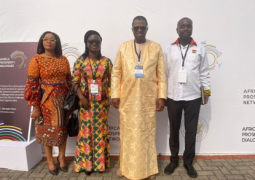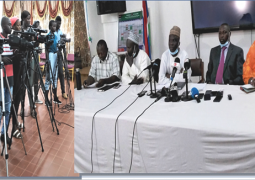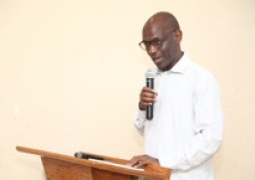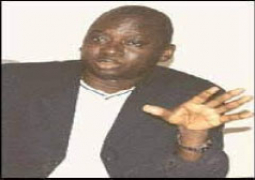During his second intervention on Wednesday at the High-Level segment of the UNGA78, this time at the meeting on Prevention, Preparedness and Response to Pandemics, the head of State recalled that “Covid-19 imposed on us a sad and bitter lesson of which we are obliged to learn”.
The health emergency “revealed the fragility of health systems and laid bare the cruelty of the inequities that characterize the world,” he said.
“During the Covid-19 pandemic, the US government applied temporary humanitarian exemptions to countries that were victims of its unilateral coercive measures,” denounced the president, who recalled that Cubans were “excluded from this temporary humanitarian relief.”
Even worse, he noted, while the pandemic claimed millions of lives on the planet, the blockade against Cuba intensified to unprecedented levels and generated difficulties and delays in the arrival of essential medical supplies and equipment to confront it, in particular, for industrialisation of Cuban vaccines.
The acquisition of medicinal oxygen in third countries and the supply of lung ventilators were even hindered, he added.
He highlighted that “despite the adversities, our biopharmaceutical industry and the potential of Cuban scientists allowed us to create in record time, three vaccines and two vaccine candidates against Covid-19.”
President Díaz-Canel emphasized that while at the worst moment of the pandemic, transnational corporations and the richest states in the West monopolised the necessary means to combat the disease, Cuba collaborated by sending 58 medical brigades to 42 countries and territories, where they joined the more than 28 thousand of Cuban health professionals who at that time were providing services in 59 nations.
That is why he confirmed that Covid-19 “showed that global cooperation is a necessity, not a choice.”
In that sense, he pointed out that "Cuba advocates the adoption of a robust international instrument for the prevention, response and recovery from pandemics, under the leadership of the World Health Organization."
“We call for the adoption of universal, redistributive and solidarity policies, with the commitment to leave no one behind,” stated the president.
We are ready to develop scientific and health exchanges with interested countries, and provide advice to promote international collaboration he expressed.
The Cuban leader reiterated that in this mission Cuba also makes available to everyone its epidemiological, clinical and laboratory protocols, the results of research in the development of innovative next-generation medicines, as well as those of scientific research.
“Each country can and must contribute what is within its reach,” he added, because “the benefits must be universally accessible to all,” said President Díaz-Canel, concluding that “to advance along that path, always count on Cuba.”
New York, Sep 21, 2023 (Prensa Latina)





